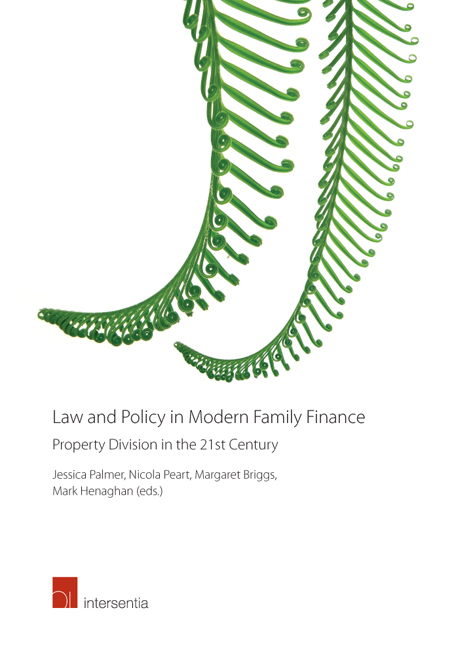Book contents
- Frontmatter
- Foreword
- Acknowledgements
- Contents
- Table of Cases
- List of Contributors
- Chapter 1 Introduction
- PART I WHO SHOULD BE COVERED BY A PROPERTY SHARING REGIME?
- PART II WHAT PROPERTY SHOULD BE COVERED BY A PROPERTY SHARING REGIME?
- PART III HOW SHOULD PROPERTY BE SHARED AT THE END OF A RELATIONSHIP?
- Index
PART III - HOW SHOULD PROPERTY BE SHARED AT THE END OF A RELATIONSHIP?
Published online by Cambridge University Press: 29 September 2018
- Frontmatter
- Foreword
- Acknowledgements
- Contents
- Table of Cases
- List of Contributors
- Chapter 1 Introduction
- PART I WHO SHOULD BE COVERED BY A PROPERTY SHARING REGIME?
- PART II WHAT PROPERTY SHOULD BE COVERED BY A PROPERTY SHARING REGIME?
- PART III HOW SHOULD PROPERTY BE SHARED AT THE END OF A RELATIONSHIP?
- Index
Summary
The chapters in Part III of this book address the concept of sharing property following the breakdown of a marriage, civil partnership, or de facto relationship. As in the preceding two parts, the focus in this part is on common law jurisdictions, with New Zealand's sharing regime featuring prominently. But this part of the book also includes a chapter on the matrimonial property regimes in the civil law jurisdictions to provide a comparative perspective on property division. In most common law jurisdictions, the property sharing system applicable on relationship breakdown does not apply when a relationship ends on death of a spouse or partner. New Zealand is unusual in that regard. The application of its sharing regime on death is addressed in Chapter 5 in this book.
The idea of marriage as a partnership to which both spouses contribute equally, albeit in different ways, became part of the common law system only in the latter half of the twentieth century. The Married Women's Property Acts adopted by the common law jurisdictions in the 1880s enabled married women to acquire and deal with property in their own right. It liberated women from their husband's coverture. But the separate property system that replaced coverture treated spouses virtually as strangers for property purposes. Rights to property acquired during the marriage were determined by the general rules of common law and equity, normally to the benefit of the husband. There was no appreciation then that his wife's domestic work and child care had economic value and freed him to accumulate assets for the benefit of the family as a whole. Social changes following World War II, including the increased participation of women in the workforce, made the courts and, eventually, the legislatures aware that the application of general property rules was leading to unjust outcomes on marital breakdown, particularly for women. Characterising marriage as a partnership to which both spouses contributed in different but equally valuable ways allowed spouses to share in the fruits of their partnership.
- Type
- Chapter
- Information
- Law and Policy in Modern Family FinanceProperty Division in the 21st Century, pp. 257 - 260Publisher: IntersentiaPrint publication year: 2017



